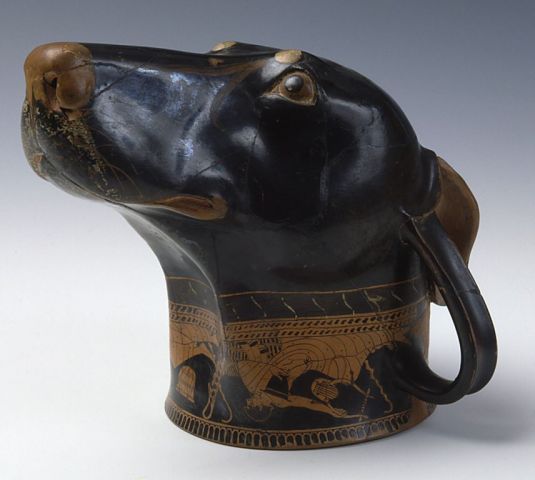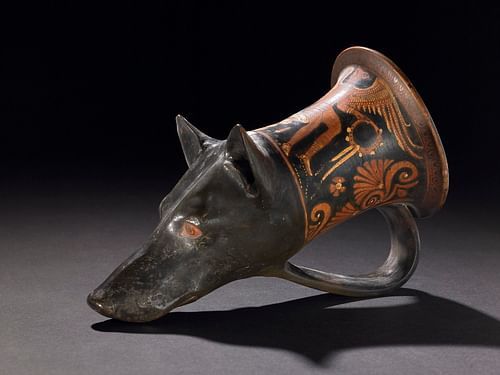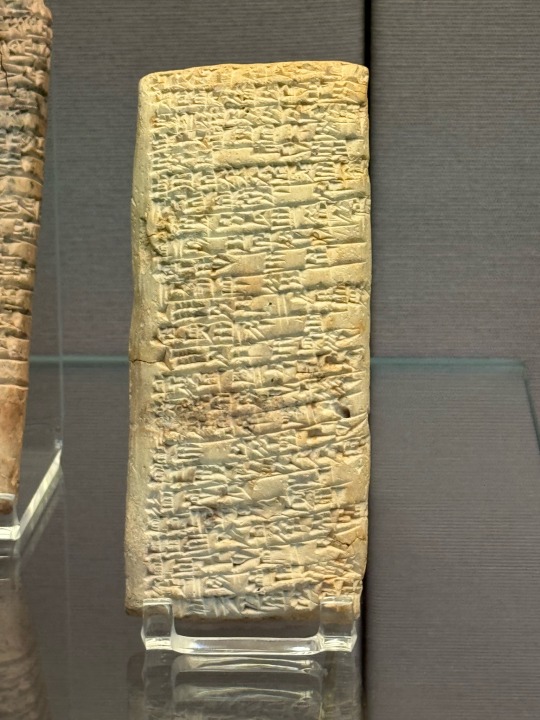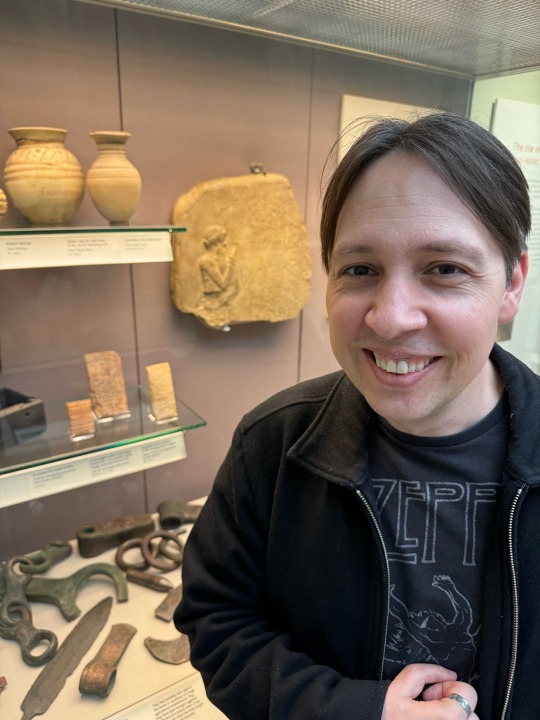flag : goretureguro .. also known as witch/vanilla/fate
Don't wanna be here? Send us removal request.
Text
straws are accessibility tools that let some disabled people drink . I’m sick of ppl demonizing them
2K notes
·
View notes
Photo
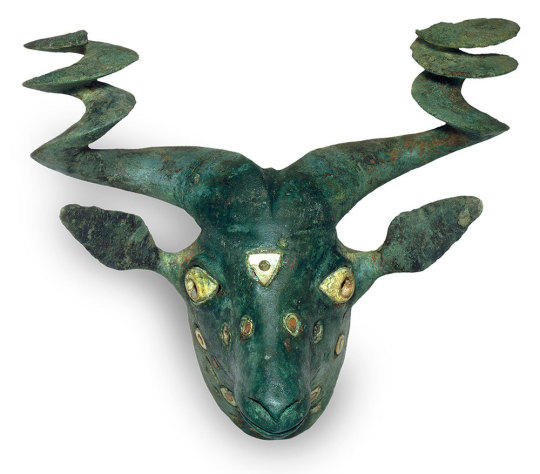
Markhor Goat Head - copper alloy, shell, and red stone - Sumerian, Early Dynastic III, c. 2550–2250 BCE
13K notes
·
View notes
Text

Iridescent silicious glass jar from Nippur
Ur III period, Neo-Sumerian, c. 2112-2004 B.C.
Al-Qādisiyyah Governorate, Iraq
531 notes
·
View notes
Text

foundation nail with kneeling god | c. 2120 - 2110 BCE | ĝirsu, lagash, sumer (modern day dhi qar governorate, iraq). reign of gudea.
in the louvre collection
80 notes
·
View notes
Text
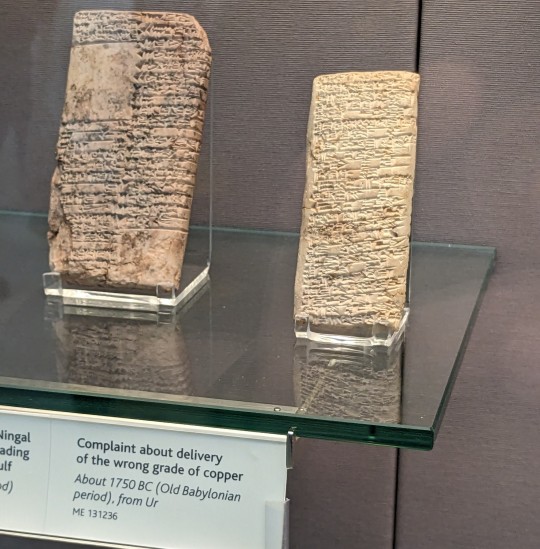
Here it is, in the...clay, one of Ea-Nasir's infamous complaint letters. It's small but you can definitely read the rage in the upward drift of the letters and the wall-to-wall text. No margins in cuneiform!
It's nigh impossible to get a good photo of it with the tag, because a) it's behind super reflective glass, b) it's next to the Royal Game of Ur which all the tours stop at so just getting to it is a feat, and c) there's a really grumpy security guard like. Right There. This is the best one I had and it was an accident, but that said I kind of like the composition.
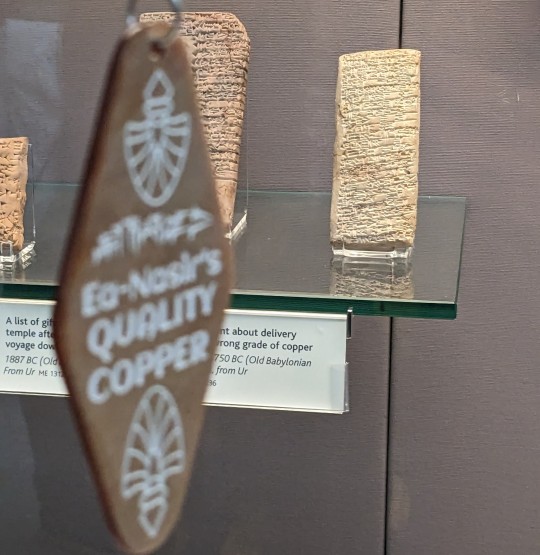
Civilizations may rise and fall, but shitty copper fraud is eternal.
In case you missed it, the tag is from @liminal-craft's Etsy shop; they're on back order at the moment but I hear more are coming. Sure, if you believe a business partner of that scurrilous copper merchant...
[ID: Two images; top is an image of an oblong cuneiform tablet about the size of a smartphone, captioned "Complaint about delivery of the wrong grade of copper" and dated to roughly 1750 BC, the Old Babylonian Period, from Ur. Second image is the same cuneiform tablet, but hanging in front of it, off to one side, is a blurry keychain; it looks like an old hotel keytag, in a shiny copper finish, and reads "Ea-Nasir's QUALITY COPPER" with decorative fan designs and a line of cuneiform text.]
2K notes
·
View notes
Text
so i'm visiting the british museum
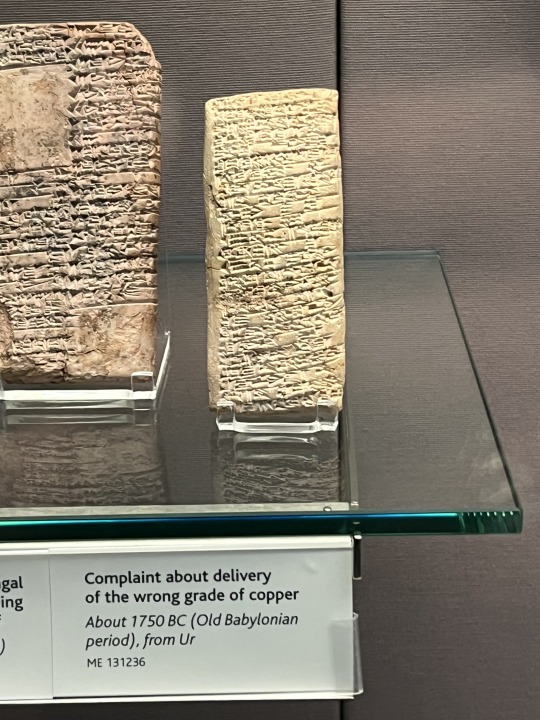
we're never going to let ea-nasir live down his copper merchant crimes
128 notes
·
View notes
Photo
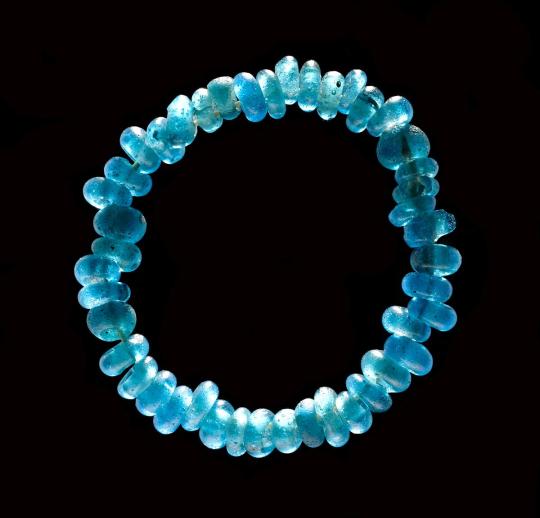
Blue glass beads from the Late Bronze Age, found in 1885 when a Danish farmer ploughed up a cremation urn at Kongehøj. Made in Mesopotamia approximately 3,100 years ago, they offer evidence of long-distance trade connections in the prehistoric world.
image from here
10K notes
·
View notes
Text
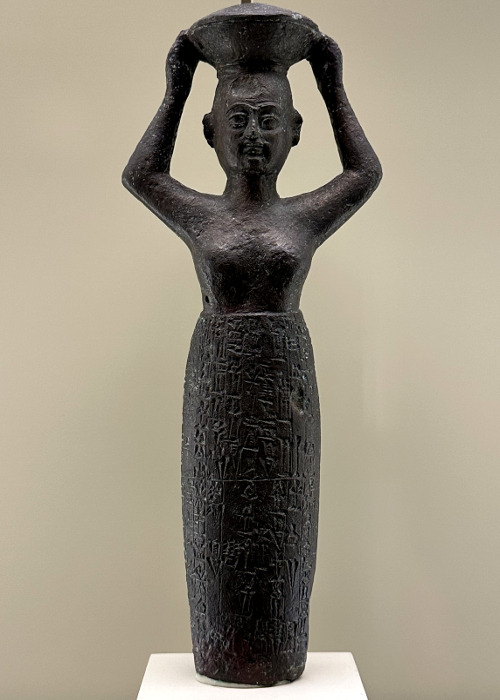
Sumerian foundation figure, dating back to the Early Dynastic period around 2900–2350 BCE. The Pergamon Museum, Berlin, GERMANY.
Photo by Babylon Chronicle
314 notes
·
View notes
Text


Terracotta vase in the form of a lobster claw, Greece, circa 460 BC
from The Metropolitan Museum of Art
10K notes
·
View notes
Text

Basilique Notre-Dame, Avioth, Lorraine, France
1K notes
·
View notes
Text
Ea-Naṣir Goes Clothes Shopping (UET V 848/BM 131428)

In the interest of helping y’all stalk a guy who’s been dead for three thousand years, I present to you another document excavated from the archives of Ea-Naṣir! This one is a purely practical one: a record of sale for 50 garments to Ea-Naṣir. The guy apparently liked his clothing (or, more likely, bought it to sell as a merchant).
11 garments: value: 1/3 mina, 2 2/3 shekels of silver 5 garments: value: 13 shekels of silver 2 garments: value: 6 ½ shekels of silver 5 garments: value: 10 2/3 shekels of silver 27 garments: value: 5/6 mina, 4 ½ shekels, 15 še ______________ 50 garments: value: 1 2/3 mina, 7 1/3 shekels, 15 še: in the hands of Mr. Ea-Naṣir
(A mina was about 500g; a shekel was 8.3g; a še was .05g. So the total weight in silver for 50 outfits was about 895g, or two pounds.)
19K notes
·
View notes
Text

Detail of an Assyrian relief from the Northwest Palace of Ashurnasirpal II in the Assyrian capital city of Nimrud (883-859 BCE). The Walters Art Museum, Baltimore, MD.
Photo by Babylon Chronicle
732 notes
·
View notes
Text

The Sennacherib prism, commissioned by the Assyrian king in the 600s BCE. Its ten sides contain records of his conquests and achievements in cuneiform. The record culminates with Sennarcherib's 15-month siege and destruction of Babylon.
{WHF} {Ko-Fi} {Medium}
459 notes
·
View notes


